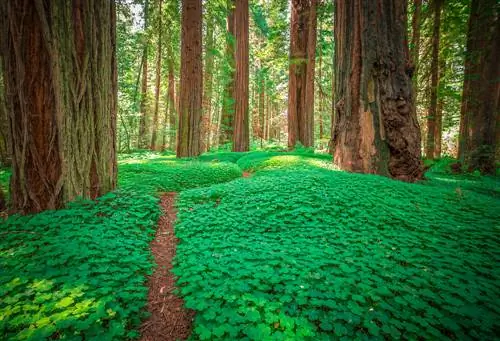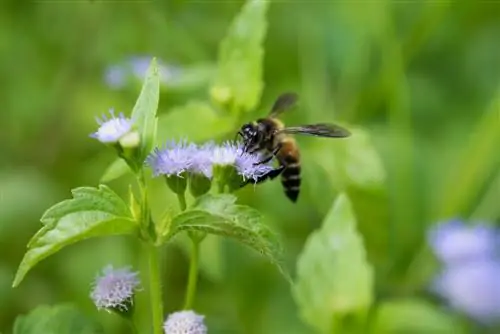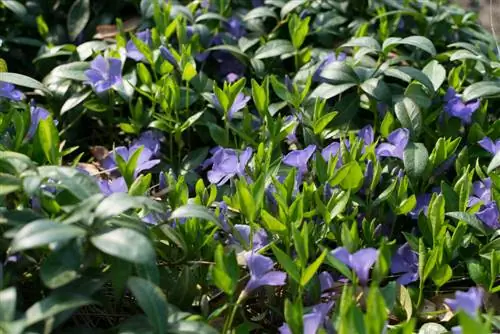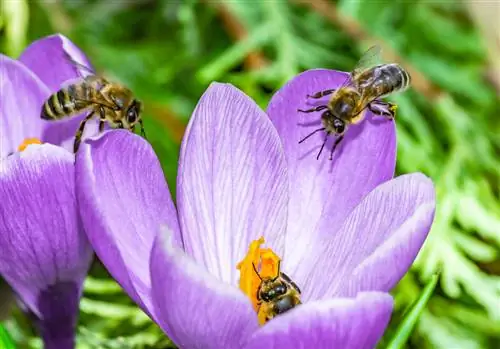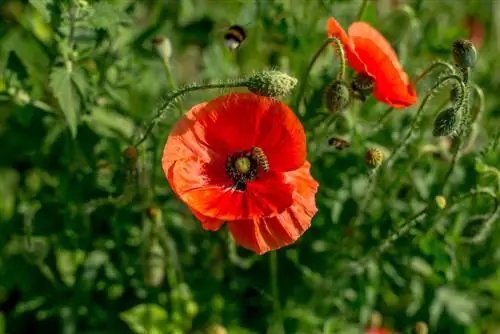- Author admin leonars@hobbygardeners.com.
- Public 2024-01-05 20:48.
- Last modified 2025-01-23 11:22.
Often decried as a weed, clover is enjoying increasing popularity in some circles. It can be used either as a pasture for bees or to improve the soil and can even be used as a medicinal herb. But is it also a good ground cover?
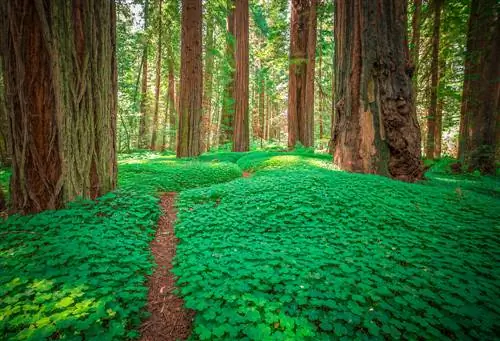
Is clover a good ground cover?
Clover is ideal as a ground cover because it is undemanding, easy to care for and fast-growing. Hard-wearing varieties such as white clover, horn sorrel and micro clover can even be used as a lawn replacement. The choice of clover depends on the soil and location.
Can I use clover as a ground cover?
Clover can be usedexcellent as a ground coverbecause it is quite undemanding and very easy to care for. Some varieties are evergreen. Additionally, clover spreads relatively quickly without you having to do much. In this way, a fairly large area can be greened in a short time. If you wish, you can keep the clover nice and short without much effort or, alternatively, enjoy the pretty flowers. This will attract insects to your garden and make a major contribution to biodiversity.
In which areas can I use clover as a ground cover?
You can use clover in practicallyin all garden areasas a ground cover, although different species prefer different locations.
For acidic soils, wood sorrel (bot. Oxalis acetosella) is particularly good. It originally grows in coniferous and mixed forests and hardly needs any sun. It shows its delicate white or pale pink flowers from April to June. The white clover (bot. Trifolium repens) prefers wet and nutrient-rich soil. It blooms from May to October. Red clover grows particularly well in the sun or partial shade.
Is clover suitable as a lawn replacement?
Some types of clover are suitable as asubstitute for a lawn, but not all. On the one hand, the clover you choose should be as sturdy as possible so that the area can actually be walked on and perhaps used as a play area by your children. On the other hand, you should choose an evergreen species, otherwise you will only see a gray and bare “lawn” in autumn and winter.
Which types of clover are hard-wearing?
Thehardened clover varieties include:
- White clover (bot. Oxalis acetosella): green leaves, white flowers
- Horn sorrel or yellow sorrel (Oxalis corniculata): reddish leaves, yellow flowers
- Micro or dwarf clover: a special breed of white clover that stays extra small
How do I care for my “clover lawn”?
Clover is generally quiteeasy to care forIf you choose the variety that suits your soil, then you have very little work to do with it. If you want your clover area to stay nice and short, then weekly mowing is recommended. However, you will then have to forego the flowering. Fertilization is not necessary as clover itself can be used as green manure. After heavy use, such as football games or a family celebration on the area, you should give your clover enough rest and not or rarely walk on it.
Tip
Beware of overgrowth
Many types of clover spread very quickly and persistently. So think carefully about where you plant the clover and, if necessary, demarcate the area with lawn edging stones (€84.00 on Amazon). Depending on the variety, the roots of the clover grow up to 70 centimeters deep into the soil. Therefore, clover can be difficult to remove from the flowerbed.

